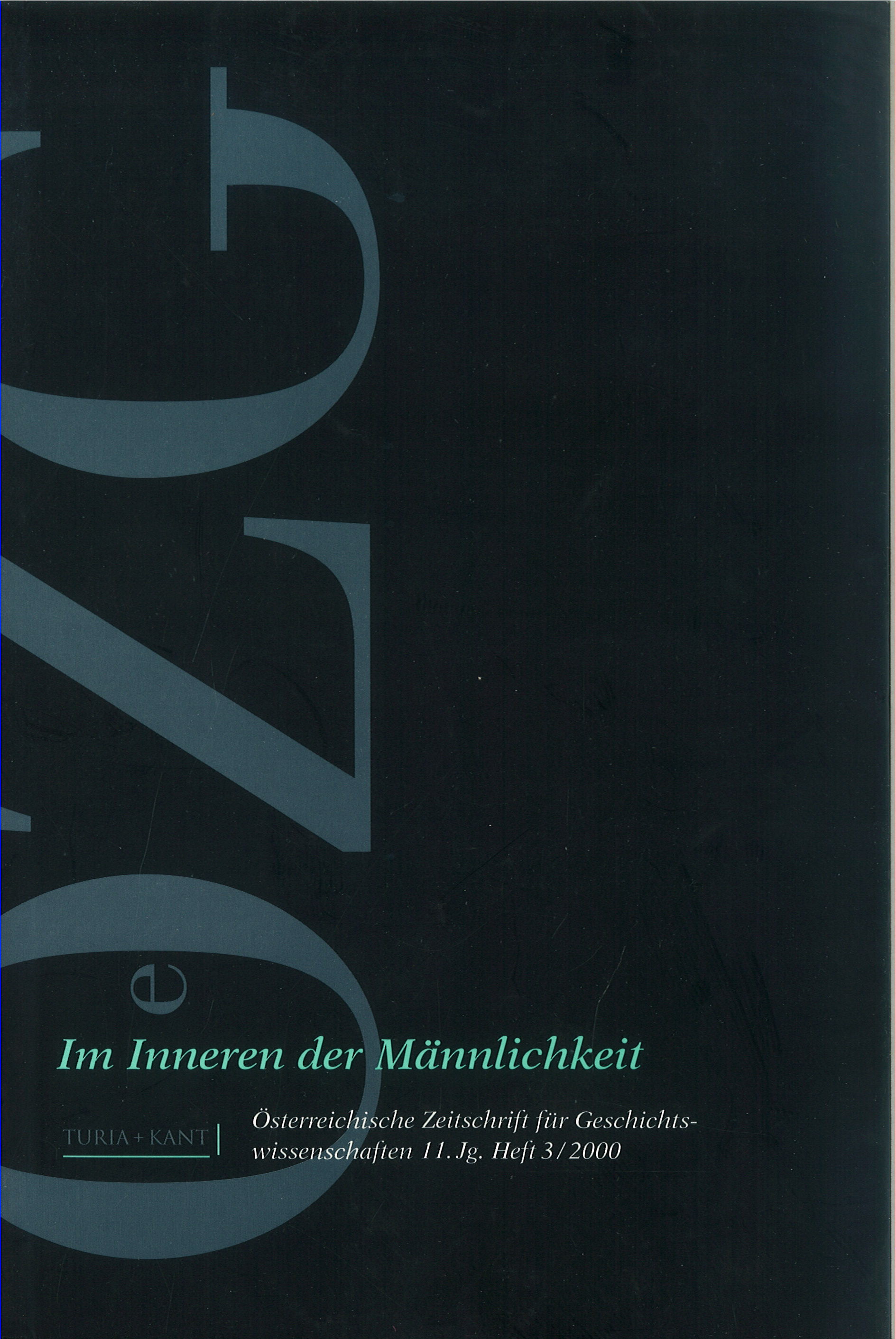Die Transmission der Männlichkeiten
DOI:
https://doi.org/10.25365/oezg-2000-11-3-3Abstract
The paper analyses some of the ways that masculinity is transmitted down the generations, according to the theory of Pierre Bourdieu that gender traits are »embodied « in individuals through a number of disciplinary, largely unconscious, mechanisms. The author first attempts to define the role which the notion of embodiment plays in Bourdieus work and compares it to the ways in which other theorists, notably Michel Foucault and Norbert Elias, have used the concept in their work. The author is particularly concerned with inheritance practices and attempts to show how, since the sixteenth century, character and competence have been defined and incarnated in individuals in ways that reflected the historical situation and prospects of family and dass. Finally, the paper discusses male sociability and the ways in which clubs, professional groups, and other all-male organisations provided the settings for the inculcation of masculine qualities which assumed the nature of embodied traits natural to men.


